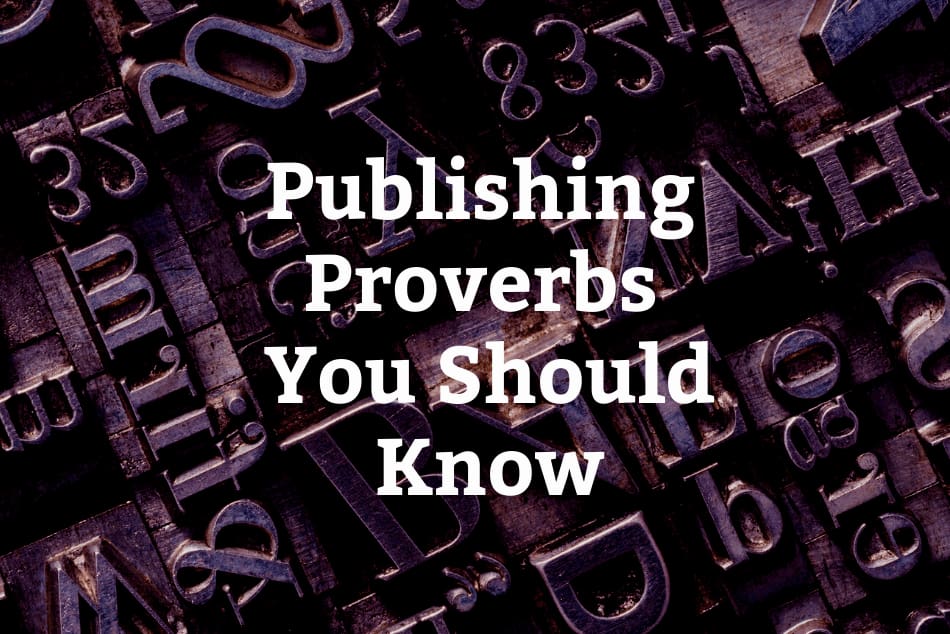Publishing is rife with conventional wisdom but some of it is actually useful. Here are some of the best.
The first page sells the book, the last page sells the next book.
I repeated this recently at a Zoom event and like an old dog full of old tricks I was surprised that so many writers there had not heard it. But it’s as true today as it was when I got my first job in book publishing some 25 years ago. The first page must grab the reader, the last page must satisfy the reader.
Action is character.
F. Scott Fitzgerald said this, and The Great Gatsby is proof that he meant it. (Just thinking about this makes me want to reread that magnificent novel.) He also said character is plot and plot is character, as Shakespeare says Character is destiny. Worth remembering when we get caught up in the “plot-driven vs. character-driven” debate.
If there’s a gun on the wall in act one, it better fire in act two.
I’m paraphrasing Anton Chekhov here, whose classic advice on foreshadowing has become so beloved a dramatic principle that it’s now known as Chekhov’s Gun.
Don’t get it right, get it written.
I used to tell my reporters this when they were running late with their stories back in my newspaper days. I wasn’t the first to say it, but I do say it a lot, not only to those reporters but to authors when I was an acquisitions editor and to clients now that I’m an agent and ultimately to myself whenever I get stuck in my own writing. All you need is a first draft—and then you can fix it.
Writing is rewriting.
I repeat, writing is rewriting. Embrace the revision process and the advice of smart editors. Rewriting what separates the wannabes from the pros.
When in doubt, delete.
This is every editor’s mantra. So the next time you find yourself struggling to make some aspect of your story work, delete it instead. I learned this lesson again while revising A Hiding Place, the third book in my Mercy Carr mystery series (coming in early 2021). My editor suggested I lose one of my favorite clues, and I balked. I’d done all that research! But eventually I caved and the book is far better for it.
It takes nine months to make a book.
In traditional publishing, we used to say that it takes about nine months to get a book through the production process, that is, once the manuscript is deemed “acceptable” and goes into production—from copy edit to printed books. Just like a baby. These days, that production process can be much shorter or much longer, depending the marketplace, the economy, current events, even acts of God (like pandemics).
You can’t start the fire, but you can fuel it.
This is what the sales and PR and marketing people always tell you when you complain to your publisher that they’re not doing enough to promote your book. Which means that if the book doesn’t catch fire when it debuts, they’re not going to spend what they see as bad money after good trying to light up sales.
Hook, book, cook.
I heard an editor quote this just recently; apparently my swell fellow agent and author Eric Smith uses this phrase to describe the best way to pitch a project: 1) hook, as in high-concept premise; 2) book, as in what happens in the story; and 3) cook, as in you the author and what about you personally and/or professionally informs your work. A good formula for a pitch.
It takes a million words to make a writer.
When I was in my twenties, I joined my first writer’s group. The grande dame of the group was an erudite professor who was a far more experienced and successful writer than the rest of us. She regarded me as the neophyte I was and told me severely, “It takes a million words to make a writer.” She was correct, of course. A million words or 10,000 hours or just a hell of lot of writing and rewriting.
You can’t make a living but you can make a killing.
I first heard this attributed to James Michener, but many people have said it. And why not, since this is the unfortunate lot of artists, especially in America. Most artists can’t make a lavish living doing their art, but a lucky few find fame and fortune. Here’s hoping it’s you and me.
There’s no crying in publishing.
Okay, so I stole this one from baseball manager Jimmy Dugan, played by Tom Hanks in A League of Their Own. (You know what they say: Bad writers plagiarize, good writers steal.) Because I love baseball and because it’s true. Whenever I hear people carrying on about how traditional publishers are evil (they’re not, for the most part) and books are dead (they’ve been falsely predicting this forever) and agents and editors wouldn’t know good work if they fell over it (we’ll fall all over each other trying to get it if it’s good work), I say There’s no crying in publishing. And then I quote the inimitable and prolific Jane K. Cleland, Agatha-winning author of nonfiction and fiction, who never complains about the vagaries of the publishing business. Rather, she says that she just tries to write a better book.
And so I’ll leave you with Jane’s Aphorism, perhaps the only one we really need: Write a better book.
This post was originally published at Career Authors.

